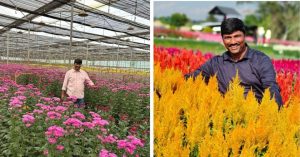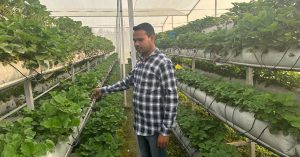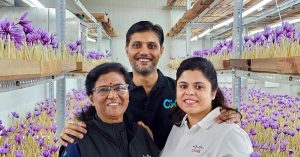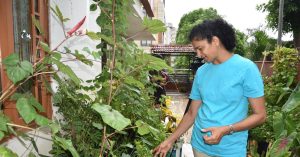Techie Starts Organic Farming Despite Family Opposition, Now Earns Rs 1 Crore/Year
Karnataka's Roja Reddy left her corporate job to pursue organic farming on ancestral land that had been left barren due to years of chemical farming. Today, she earns crores through her successful venture, Nisarga Native Farms.
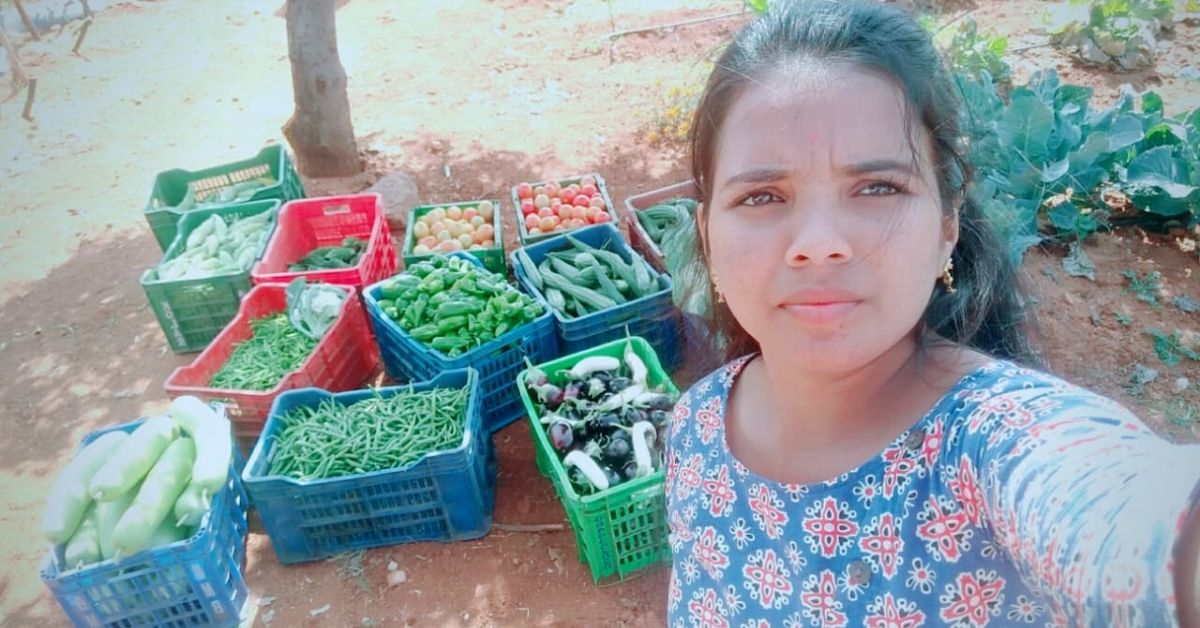
Working for a tech giant in a metro city is a dream come true for many, but it wasn’t for Roja Reddy, who grew up in Donnehalli, a rural village in Karnataka.
With an undying love for agriculture, the 26-year-old dreamt of becoming a farmer. On the contrary, her family, who had been farmers for generations, wanted her to get a well-paying job in the city rather than toil in the soil.
In accordance with her family’s wish, Roja pursued BE and got herself a job in a reputed company in Bengaluru. She continued with her corporate job and kept her desire aside for a while, until the COVID-19 pandemic hit in 2020.
When her company switched to work-from-home mode, she returned home and decided to finally try her hand at organic farming.
“My father and brother are full-time farmers, but due to huge losses, they were at the verge of giving up altogether. I wanted to do something about this, even though they didn’t want me to farm. So I took it up as a challenge to revive our family farm through organic methods, and started working in the field post 4 pm, after my official work hours,” Roja tells The Better India.
“My family wasn’t convinced that I could revive the land in an organic way, as they had been using only chemical fertilisers for years. But in fact, chemicals were the major reason for the decline in our farm’s produce. After a lot of hard work, I was able to prove them wrong,” says the 26-year-old.
Today, Roja has quit her job and works as a full-time farmer, growing organic vegetables on 50 acres of sprawling land. She now earns around Rs 1 crore in revenue annually, she says.
The essential switch to organic farming
Roja says that when she took up organic farming in 2020, her family, especially her father and brother, opposed her decision. Her relatives and villagers also questioned why she would take up farming when she had a high-paying corporate job in hand.
“The villagers believed that only chemical farming would give them better yield, which was in fact the opposite. Growing up, I saw my grandfather practicing organic farming but my father and brother used chemicals for so long that the quality of the soil had decreased drastically, resulting in very less productivity,” she explains.
Out of the 20 acres of farm land at Donnehalli village in the drought-prone Chitradurga district, only six were used by her family to grow pomegranates. The rest was left unused due to difficulty in irrigation.
Roja requested her family to let her do farming on the unused land and set up her organic vegetable farm on six acres.
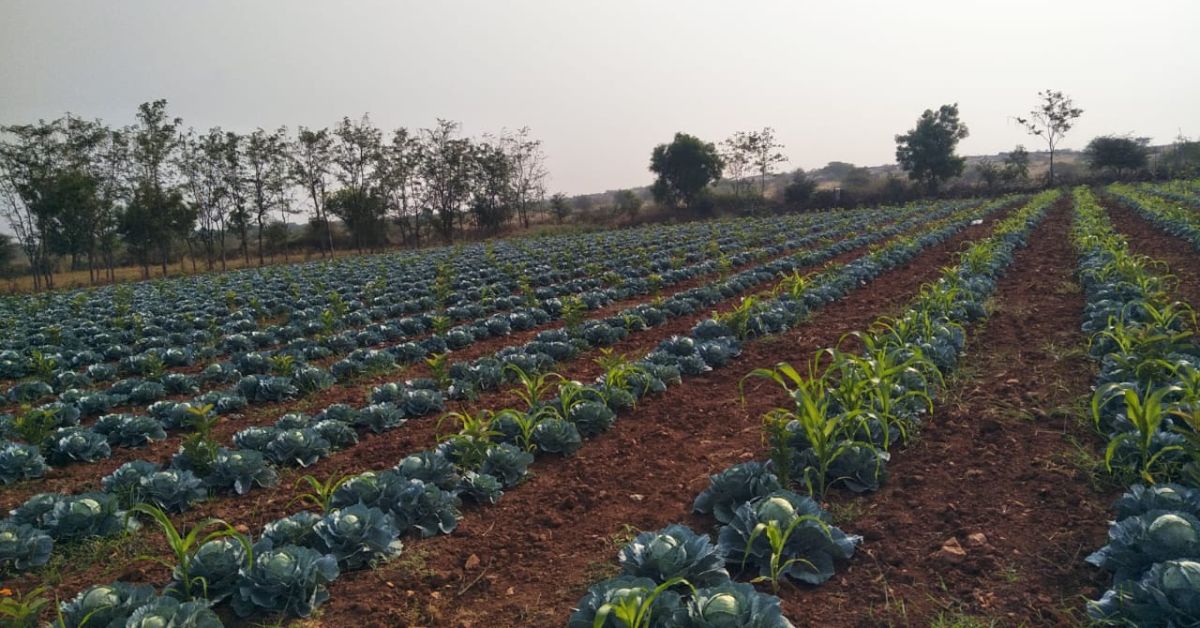
When she first started farming, she was “ridiculed for adopting organic farming techniques by her relatives, other farmers, villagers, and even the officials of the department of horticulture”, she says.
“I thoroughly studied organic farming on the internet and contacted several other farmers who have been doing it successfully. With their guidance, I was able to grow my own organic vegetable farm within a few months,” she says, adding that she initially grew around 40 different varieties of vegetables including beans, brinjals, and capsicum.
She also made organic fertilisers and pesticides like jeevamrut, neemastra, agniastra and so on for her crops
Creating her own luck
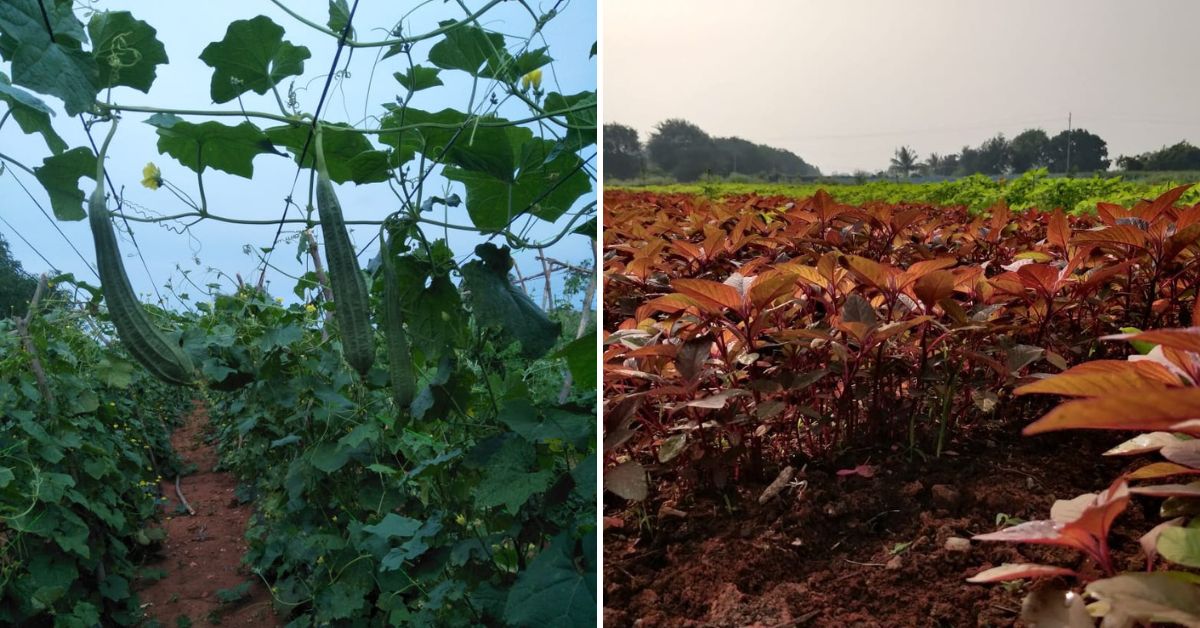
Though she proved that it’s quite possible to turn a chemical-laden land into a flourishing organic farm, Roja says that she faced the real challenge while marketing her produce.
“I never expected it to be this hard to market organic produce. Though I harvested hundreds of kilos of vegetables, I struggled to find a market,” she says. “People in my village and the nearby areas were not aware of organic farming or produce. They didn’t know the quality or its benefits and hence there was no market.”
Roja travelled to different places across the state to market her produce, she says. “I travelled to different taluks and formed a group of eight organic farmers from Chitradurga first. We then spoke to local authorities in each taluk to provide us some space to set up a market for our produce. We even visited houses to create awareness about organic vegetables and invited them to our market, which we started conducting weekly in different areas,” she elaborates.
Eventually, her network expanded as more organic farmers joined from across the state.
Roja expanded her market to different districts like Udupi, Dakshina Kannada, and so on.
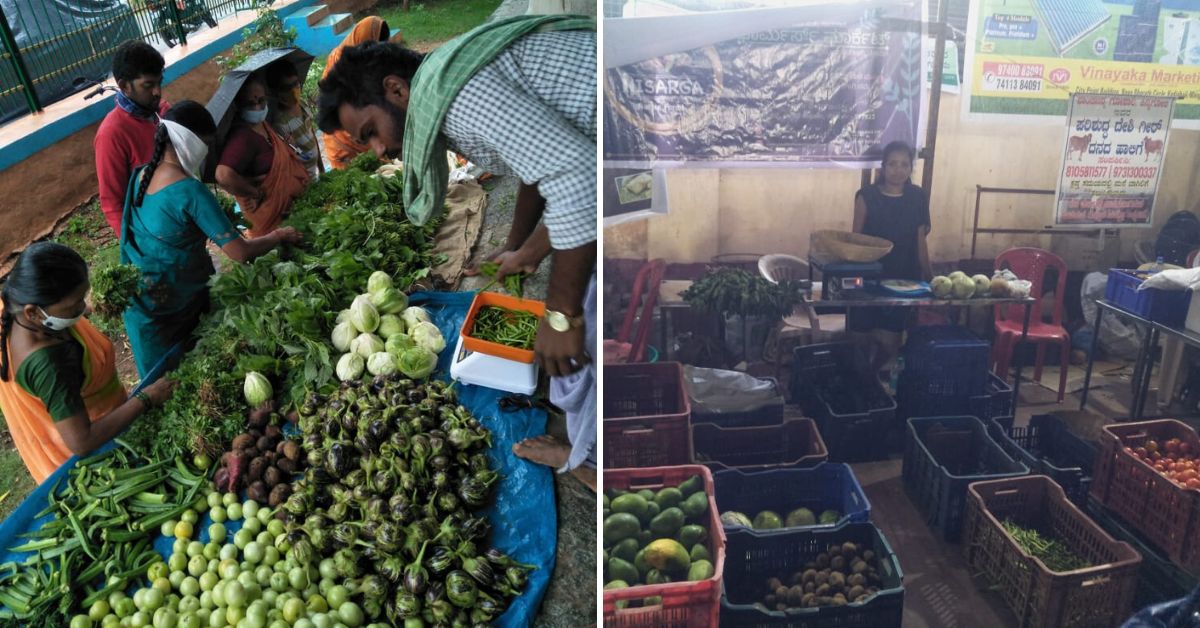
“Currently, there are around 500 farmers in my network across Karnataka. We have been setting up organic markets across the state for a year. We also started getting huge orders from cities like Bengaluru,” says Roja, who established her own brand under the name Nisarga Native Farms, which has also tied up with a few retail outlets in Bengaluru.
Thus within a year, she not only managed to revive her family land into a flourishing organic farm, but also created a market opportunity to sell her produce.
After proving her mettle, she says that her family was convinced about her passion and expertise, so she quit her corporate job to be a full-time farmer.
Another challenge she faced was the issue of irrigation. Because Chitradurga is a drought prone district, irrigation has always been tough in the area, she explains.
“One of the best things about organic farming is that it requires very less water when compared to inorganic farming methods. But it was essential to find a practical solution for irrigation. So other than the three borewells on my land, I dug two ponds for rainwater harvesting,” says Roja, who has set up a drip irrigation system for her farm.
As a pioneer in organic farming in her village, today several farmers, including those who mocked her, started approaching her to learn organic farming.
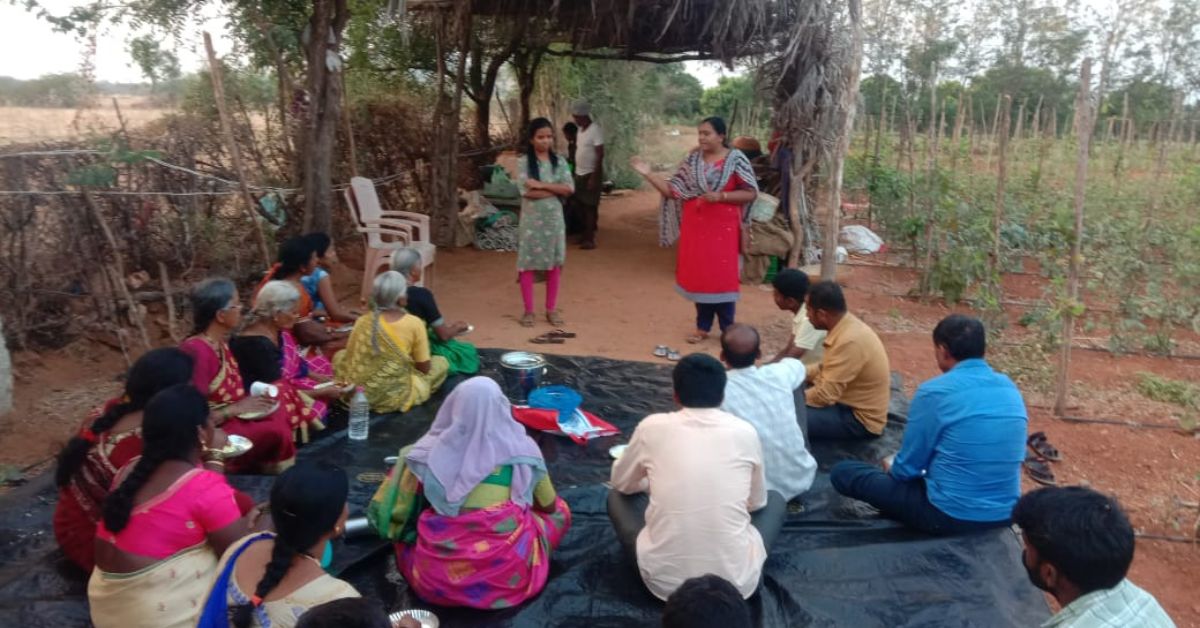
“So far, around 25 farmers in my village have shifted to organic farming under my guidance. I also help them sell their produce through the markets, directly, without any middlemen thereby earning them a decent amount,” she adds.
From six acres of land, Roja now expanded her farm to 50 acres and grows around 20 varieties of vegetables including varieties of tomatoes, beans, carrots, brinjal, ladies fingers, bottle gourds, bitter gourds, chillies, and cucumbers.
“I harvest around 500 kg to 700 kg of vegetables every day and earn around Rs 1 crore annually,” says Roja, adding that she also provides employment to around 10 villagers on her farm.
For more information, contact Nisarga Native Farms at 8088064510
Edited by Divya Sethu
If you found our stories insightful, informative, or even just enjoyable, we invite you to consider making a voluntary payment to support the work we do at The Better India. Your contribution helps us continue producing quality content that educates, inspires, and drives positive change. Choose one of the payment options below for your contribution- By paying for the stories you value, you directly contribute to sustaining our efforts focused on making a difference in the world. Together, let’s ensure that impactful stories continue to be told and shared, enriching lives and communities alike. Thank you for your support. Here are some frequently asked questions you might find helpful to know why you are contributing?

This story made me
-
97
-
121
-
89
-
167




